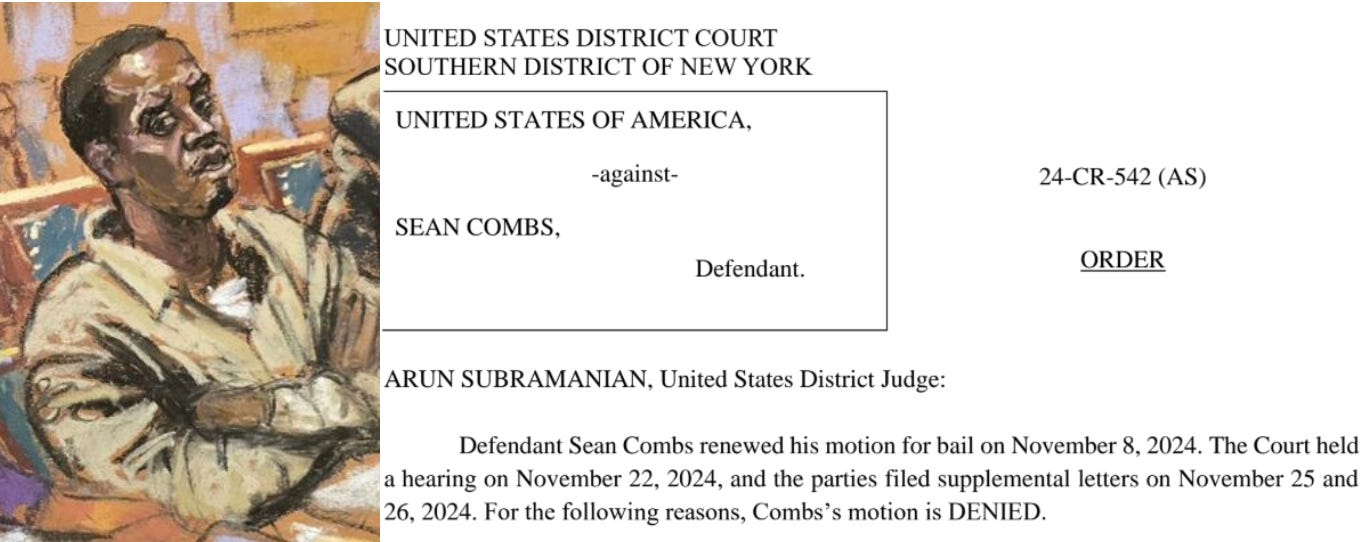Judge rejects Sean 'Diddy' Combs' 3rd bail request in federal sex trafficking case
The order cites his lawyers' 'misrepresentation' in court when explaining why no condition can reasonably assure public safety.

Sean “Diddy” Combs will spend Thanksgiving in jail after a federal judge on Wednesday rejected his third request for bail.
U.S. District Judge Arun Subramanian said the evidence against the 55-year-old hip-hop mogul shows “a serious risk of witness tam…


